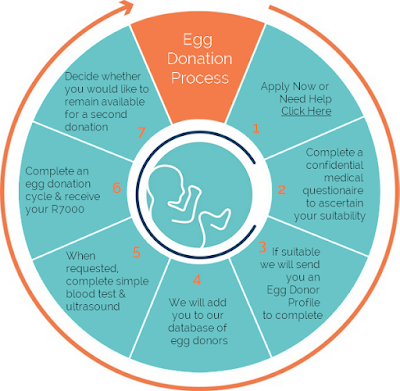The donation of eggs is an important part of the Surrogate Pregnancy process. Without egg donation, it is not possible to assume anything about the surrogacy process. Due to the vitality of egg donation, it becomes essential to learn about the stages involved in the egg donation process.
During the initial stage, egg donors meet the intended parent(s). After the meeting, an egg donor needs to undergo several screening tests at the fertility centre. The screening process involves the following stages:
Initial Screening Tests Conducted By Patriot Conceptions
The initial screening of egg donors includes the following:
- Fertility
Screening:
During this test, donors undergo a fertility examination. This ensures
their ability to generate eggs through a pelvic exam and blood tests. For
the fertility test, egg donors undergo a vaginal sonogram on the second or
third day of menstruation.
- Medical
Screening:
This involves examining blood type, medical history, drug use, and general
health check-up.
- Genetic
Screening: In
this examination stage, the family history of the egg donor is evaluated.
This evaluation helps raise awareness of possible hereditary diseases or
other genetic disorders. Testing involves blood tests to identify genetic
diseases like cystic fibrosis, Tay-Sachs disease, sickle cell anaemia,
thalassemia, and others.
- Psychological
Screening:
During this test, the donor undergoes psychological analysis.
Psychologists address the donors regarding the benefits and risks of egg
donation. This ensures the psychological health of egg donors for the
further process. During this phase, the intended parents are also guided
regarding the Average Cost of Surrogacy and egg donation
process.
These are some tests involved in the initial stage of screening. Now, we will discuss the further process of egg donation.
Cycle Synchronization
The process of cycle synchronization involves the following steps:
- As
an initial step, the egg donor and surrogate receive certain medications.
These medications synchronize their menstruation cycle.
- After
three weeks of medication, the egg donor undergoes a vaginal sonogram,
after which she receives Lupron hormones through self-injections. These
are given for around two weeks.
- Following
the self-injection of Lupron hormone, the donor receives a
follicle-stimulating hormone (FSH) for around ten days. This helps in the
growth of egg follicles.
- During
the FSH medication, egg donors are monitored by health specialists, who
measure the growth of follicles within a healthy and appropriate
range.
- Before the retrieval, egg donors need to undergo a final screening test. This helps to identify sexually transmitted infections.
Retrieval
The egg retrieval process involves the following steps:
- After
the growth of follicles, donors take an injection of HCG. HCG prepares the
ovaries of a donor for retrieval.
- The
egg retrieval process starts after 36 hours of HCG injection.
- A
donor receives light sedative drugs before the egg retrieval procedure.
This ensures the comfort of the donor.
- During
the process, a physician passes a needle through the vaginal wall and
aspirate the follicle fluid that contains the eggs. This process is
monitored under ultrasound guidance.
- The egg retrieval procedure is very short, which lasts for around 30 minutes or less. Following the retrieval, the donor stays under monitoring for an hour or two.
Post-Retrieval Precautions
After the Donor Egg IVF retrieval process, the donors return to their normal routine. It is important to note that donors should have to avoid physically strenuous activities and exercises for a few weeks after the retrieval.

Comments
Post a Comment